Canada's Drug Agency Lecture — Cost-Effectiveness of Naloxone Kits in Canadian High Schools and Community Centre Settings
Event Date: March 5, 2020
Location: 1:30 p.m. to 2:45 p.m. Dow’s Lake Court Conference Centre, 865 Carling Avenue, Ottawa, Ontario - Live Stream details on registration
The opioid crisis continues to devastate families and communities across Canada. According to the Public Health Agency of Canada, an estimated 12,800 Canadians died from an apparent opioid-related overdose between January 2016 and March 2019. This is a complex issue that requires a compassionate, multi-faceted, evidence-based response. One of those facets is health economics, the branch of economics concerned with how to best allocate scarce health care resources for maximum benefit. In this lecture, the role and impact of health economics in supporting decision-making will be explored using the case study of the cost-effectiveness of naloxone kits in Canadian high schools and community centre settings.
|
Why Organizations, Researchers, and Patients Are Falling Prey to Predatory Journals
Dr. Kelly Cobey
Investigator at the Ottawa Hospital Research Institute (OHRI) working in the Centre for Journalology
Date: October 10, 2019
Lecture: 1:30 p.m. to 2:30 p.m. EDT Dow’s Lake Court, Council Chambers or via Live Stream
In person: Dows Lake Court Conference Centre, 865 Carling Avenue, Ottawa.
Watch the webinar |
Why Oncology Needs More Common Sense and Less Cheerleading — A Case for a Centre for Sense in Oncology
Bishal Gyawali, MD, PhD
Assistant Professor in the Department of Public Health Sciences, a scientist in the Division of Cancer Care and Epidemiology, and a clinical Fellow in the Department of Medical Oncology at Queen’s University in Kingston, Canada. He is also an affiliated faculty member at the Program On Regulation, Therapeutics, and Law in the Department of Medicine at Brigham and Women's Hospital in Boston, and previously served as a medical consultant for the not-for-profit Anticancer Fund in Belgium. He is on the editorial and advisory board for multiple medicine and oncology journals, and has authored or co-authored more than 70 peer-reviewed articles. His areas of academic interests include cancer policy, global oncology, evidence-based oncology, financial toxicities of cancer treatment, clinical trial methods, and supportive care. He is an advocate of "cancer groundshot" — a term he coined to imply that investment should be made on proven high-value interventions in cancer care that are easy to implement globally and are affordable.
Date: September 5, 2019
Lecture: 1:30 p.m. to 2:30 p.m. EDT Dow’s Lake Court, Council Chambers or via Live Stream
In person: Dows Lake Court Conference Centre, 865 Carling Avenue, Ottawa.
Watch the webinar |
Gene Therapy: A Scientific Renaissance?
 Dr. Matthew Seftel Dr. Matthew Seftel
Head, Department of Medical Oncology and Hematology, CancerCare Manitoba
Associate Professor, Section of Hematology/Oncology, Department of Internal Medicine, University of Manitoba.
Date: Tuesday, February 27, 2018
Lecture: 2:00 p.m. to 3:00 p.m. EST
Reception: 3:00 p.m. to 3:30 p.m. EST
In person: Dows Lake Court Conference Centre, 865 Carling Avenue, Ottawa.
Watch the webinar |
HTA and Quality Improvement: The Whole is More than the Sum of Its Parts
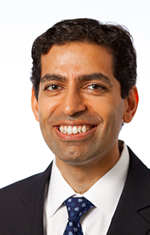 Dr. Irfan Dhalla Dr. Irfan Dhalla
Vice-President of Evidence Development and Standards at Health Quality Ontario
@IrfanDhalla
Date: Wednesday, November 29, 2017
Lecture: 1:30 p.m. to 2:30 p.m. ET
Reception: 2:30 p.m. to 3:00 p.m. ET
In person: Dows Lake Court Conference Centre, 865 Carling Avenue, Ottawa
Online: Information to access the live stream broadcast will be provided after registration, closer to the event date.
Watch the webinar |
Canada’s Opioid Crisis: The Changing Reality Between Exam Rooms and Ivory Towers
 Dr. Hakique Virani Dr. Hakique Virani
Medical Director, Metro City Medical Clinic; and Assistant Clinical Professor, Department of Medicine, University of Alberta
@hakique
Date: Thursday, October 12, 2017
Lecture: 2:00 p.m. to 3:00 p.m. ET
Reception: 3:00 p.m. to 3:30 p.m. ET
In-person: Dows Lake Court Conference Centre, 865 Carling Avenue, Ottawa
Online: Information to access the live stream broadcast will be provided after registration, closer to the event date.
Watch the webinar |
An Introduction to Health Economics
 Scott Klarenbach, MD, Professor and Clinician Scientist in the Department of Medicine at the University of Alberta Scott Klarenbach, MD, Professor and Clinician Scientist in the Department of Medicine at the University of Alberta
Date: Monday, November 28, 2016, in person or via webinar
Time: 1:00 p.m. to 2:30 p.m. EST
Location: Dow’s Lake Court Conference Centre, 865 Carling Avenue, Ottawa, Ontario
Watch the webinar |
The Emergence of Health Technology Optimization & Managed Exit
 Tom Noseworthy, MD Tom Noseworthy, MD
Professor, Health Policy and Management, Department of Community Health Sciences and O’Brien Institute for Public Health, Cumming School of Medicine, University of Calgary
Date: Thursday, October 27, 2016
Time: 1:00 p.m. to 2:30 p.m. EDT
Location: 2nd Floor Council Chambers, 865 Carling Avenue, Ottawa, Ontario
|
Panel Discussion on Making Evidence Meaningful: Optimal Use and Adoption of Medical Imaging Equipment
From Canada's Drug Agency Symposium 2016
Evidence indicates that 10% to 20% of medical imaging is unnecessary or inappropriate, which strains health resources, overburdens wait-lists and, in the case of computed tomography (CT) scans, exposes patients to unnecessary radiation doses. This session will explore the role that evidence-based advice, recommendations, and tools play in facilitating the appropriate use and adoption of medical imaging equipment. Canadian experts will identify meaningful evidence-based products and services that will support the appropriate use of new and existing imaging equipment. Panellists will also discuss methods to support the translation of this evidence into care. The session will briefly cover the Canada's Drug Agency work on the Canadian Medical Imaging Inventory.
Panellists:
- Mr. François Couillard, Canadian Association of Medical Radiation Technologists
- Ms. Annie Bilodeau, Canadian Interventional Radiology Association
- Dr. Martin Reed, Canadian Association of Radiologists
- Dr. Ross Davies, Canadian Society of Cardiovascular Nuclear and CT Imaging, and University of Ottawa Heart Institute
- Ms. Lisa Pyke, Canada's Drug Agency
Moderator:
- Dr. Brian’ O’Rourke, President and CEO, Canada's Drug Agency
Watch the webinar |
Oral Presentations on Patient and Public Engagement
From Canada's Drug Agency Symposium 2016
Going Beyond Surveys: Bringing the Power of Patient Narrative to Patient Submissions
- Mr. Zal Press, Patient Commando Productions
- Mr. Michael Houlahan, Sand Pile Inc.
Patient Values
- Mr. Barry Stein, Colorectal Cancer Association of Canada
Integrating Qualitative Research Into Health Technology Assessment in Canada: The Canada's Drug Agency Experience
- Dr. Laura Weeks, Canada's Drug Agency
Using Qualitative Research Methods to Solicit Patient Experiences and Values for Health Technology Policy-Making: The Case of Non-Invasive Prenatal Testing
- Prof. Meredith Vanstone, McMaster University
Watch the webinar |
A “Revolution”? — The Limits of Personalized Medicine
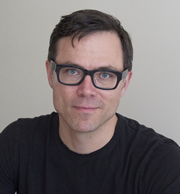 Timothy Caulfield, LLM, FRSC, FCAHS Timothy Caulfield, LLM, FRSC, FCAHS
Canada Research Chair in Health Law & Policy
Trudeau Fellow and Professor, Faculty of Law and School of Public Health
Research Director, Health Law Institute, University of Alberta
@CaulfieldTim
Date: Tuesday, January 26, 2016
Time: 1:00 p.m. to 2:30 p.m. EST
Location: 2nd Floor Council Chambers, 865 Carling Avenue, Ottawa, Ontario
|
Is Deliberative Public Engagement Worth the Trouble?
 On December 8, Dr. Michael Burgess presented the last Canada's Drug Agency Lecture of 2015. Dr. Burgess argued that, taking into account the advantages and disadvantages of deliberative public engagement, it is best used when the scale and urgency of policy decisions justify the expense and effort. On December 8, Dr. Michael Burgess presented the last Canada's Drug Agency Lecture of 2015. Dr. Burgess argued that, taking into account the advantages and disadvantages of deliberative public engagement, it is best used when the scale and urgency of policy decisions justify the expense and effort.
Michael M. Burgess, PhD
Professor, W. Maurice Young Centre for Applied Ethics, School of Population and Public Health
Watch the webinar |
Health Technology Assessment: Then, Now, and Beyond…
 On November 26, 2015, Dr. Renaldo Battista, Scientific Director, Fonds de recherche du Québec — Santé, and recipient of the Canada's Drug Agency Anniversary Medal and the Dr. Jill M. Sanders Award of Excellence in Health Technology Assessment, covered the evolution of HTA and discussed current and future opportunities in the field. On November 26, 2015, Dr. Renaldo Battista, Scientific Director, Fonds de recherche du Québec — Santé, and recipient of the Canada's Drug Agency Anniversary Medal and the Dr. Jill M. Sanders Award of Excellence in Health Technology Assessment, covered the evolution of HTA and discussed current and future opportunities in the field.
Renaldo Battista, MD, MPH, ScD, FRCP (C)
Scientific Director, Fonds de recherche du Québec — Santé
Watch the webinar |
Imagining the Impossible: Redefining Canadian Health Care
 On October 27, 2015, Dr. Fiona Clement challenged some commonly held preconceptions about the Canadian health care system and put forward her ideas about what we could do differently. Dr. Clement proposed concrete steps forward for integrating evidence into the system and talked about what needs to change to get us to where she thinks we need to be — a sustainable, universally accessible, equitable health care system. On October 27, 2015, Dr. Fiona Clement challenged some commonly held preconceptions about the Canadian health care system and put forward her ideas about what we could do differently. Dr. Clement proposed concrete steps forward for integrating evidence into the system and talked about what needs to change to get us to where she thinks we need to be — a sustainable, universally accessible, equitable health care system.
Dr. Fiona Clement
Director of the Health Technology Assessment and Appraisal Unit, O’Brien Institute for Public Health, and Assistant Professor, University of Calgary
Watch the webinar |
Comparative Effectiveness for Interventions and Devices
 On September 24, 2015, Dr. Art Sedrakyan hosted an insightful lecture that demonstrated how the use of international data resources and routinely available US data can support informed decisions about hospital procedures and interventions and encourage national investment in device/intervention evaluations. On September 24, 2015, Dr. Art Sedrakyan hosted an insightful lecture that demonstrated how the use of international data resources and routinely available US data can support informed decisions about hospital procedures and interventions and encourage national investment in device/intervention evaluations.
Art Sedrakyan, MD, PhD
Professor of Healthcare Policy and Research in Cardiothoracic Surgery, Weill Cornell Medical College
Watch the webinar |
Choosing Wisely Canada: Evidence-Based Medicine and Changing the Canadian Health Care Environment
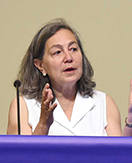 On June 9, 2015, Dr. Wendy Levinson provided an overview of Choosing Wisely Canada (CSC), described the ‘epidemic of overuse’, and discussed implementation efforts of Choosing Wisely recommendations within the Canadian health care environment by various health care organizations. On June 9, 2015, Dr. Wendy Levinson provided an overview of Choosing Wisely Canada (CSC), described the ‘epidemic of overuse’, and discussed implementation efforts of Choosing Wisely recommendations within the Canadian health care environment by various health care organizations.
Dr. Wendy Levinson
Professor and the past Chair of the Department of Medicine, University of Toronto
|
All That Glitters Is Not Gold — Are Systematic Reviews Fool's Gold?
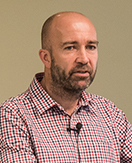 On May 25, 2015, Jon Brassey, Director, Trip Database, delivered a thought-provoking presentation focusing on the problems of systematic reviews, the rise of the rapid review, and the potential role of automation. On May 25, 2015, Jon Brassey, Director, Trip Database, delivered a thought-provoking presentation focusing on the problems of systematic reviews, the rise of the rapid review, and the potential role of automation.
Jon Brassey
Director, Trip Database
Watch the webinar
|
Patient Engagement in Health Technology Assessment
April 13, 2015 at the 2015 Canada's Drug Agency Symposium in Saskatoon, Saskatchewan, conference members discussed different aspects of Patient Engagement and the processes of evaluating health technologies.
 Sarah Berglas, Patient Engagement Officer, Canada's Drug Agency Sarah Berglas, Patient Engagement Officer, Canada's Drug Agency
Using Patient Perspectives to Frame HTAs
Watch the webinar |
Developing a Values-Based Framework for Decision-Making in Technology Assessment (and Health)
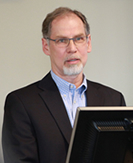 On March 12, 2015, Dr. Murray Krahn talked about developing a fair, transparent, and values-based framework for decisions about the adoption and use of health technologies. On March 12, 2015, Dr. Murray Krahn talked about developing a fair, transparent, and values-based framework for decisions about the adoption and use of health technologies.
Dr. Murray Krahn
Director of THETA — Toronto Health Economics and Technology Assessment — Collaborative
Watch the webinar
|
Judging the Gift From the Box: Reflections on the Power and Significance of Bernie O'Brien's "Power and Significance"
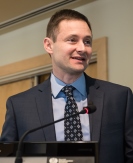 On February 10, 2015, Dr. Jeffrey Hoch recognized some of the academic contributions of the late Professor Bernie O'Brien and how they are still relevant to HTA today. On February 10, 2015, Dr. Jeffrey Hoch recognized some of the academic contributions of the late Professor Bernie O'Brien and how they are still relevant to HTA today.
Dr. Jeffrey Hoch
Director, Centre for Leadership and Excellence in Economic Analysis and Research (CLEAR), Li Ka Shing Knowledge Institute, St. Michael's Hospital
Watch the webinar
|



 Dr. Matthew Seftel
Dr. Matthew Seftel Dr. Irfan Dhalla
Dr. Irfan Dhalla Dr. Hakique Virani
Dr. Hakique Virani Scott Klarenbach, MD, Professor and Clinician Scientist in the Department of Medicine at the University of Alberta
Scott Klarenbach, MD, Professor and Clinician Scientist in the Department of Medicine at the University of Alberta Tom Noseworthy, MD
Tom Noseworthy, MD Timothy Caulfield, LLM, FRSC, FCAHS
Timothy Caulfield, LLM, FRSC, FCAHS On December 8, Dr. Michael Burgess presented the last Canada's Drug Agency Lecture of 2015. Dr. Burgess argued that, taking into account the advantages and disadvantages of deliberative public engagement, it is best used when the scale and urgency of policy decisions justify the expense and effort.
On December 8, Dr. Michael Burgess presented the last Canada's Drug Agency Lecture of 2015. Dr. Burgess argued that, taking into account the advantages and disadvantages of deliberative public engagement, it is best used when the scale and urgency of policy decisions justify the expense and effort. On November 26, 2015, Dr. Renaldo Battista, Scientific Director, Fonds de recherche du Québec — Santé, and recipient of the Canada's Drug Agency Anniversary Medal and the Dr. Jill M. Sanders Award of Excellence in Health Technology Assessment, covered the evolution of HTA and discussed current and future opportunities in the field.
On November 26, 2015, Dr. Renaldo Battista, Scientific Director, Fonds de recherche du Québec — Santé, and recipient of the Canada's Drug Agency Anniversary Medal and the Dr. Jill M. Sanders Award of Excellence in Health Technology Assessment, covered the evolution of HTA and discussed current and future opportunities in the field. On October 27, 2015, Dr. Fiona Clement challenged some commonly held preconceptions about the Canadian health care system and put forward her ideas about what we could do differently. Dr. Clement proposed concrete steps forward for integrating evidence into the system and talked about what needs to change to get us to where she thinks we need to be — a sustainable, universally accessible, equitable health care system.
On October 27, 2015, Dr. Fiona Clement challenged some commonly held preconceptions about the Canadian health care system and put forward her ideas about what we could do differently. Dr. Clement proposed concrete steps forward for integrating evidence into the system and talked about what needs to change to get us to where she thinks we need to be — a sustainable, universally accessible, equitable health care system. On September 24, 2015, Dr. Art Sedrakyan hosted an insightful lecture that demonstrated how the use of international data resources and routinely available US data can support informed decisions about hospital procedures and interventions and encourage national investment in device/intervention evaluations.
On September 24, 2015, Dr. Art Sedrakyan hosted an insightful lecture that demonstrated how the use of international data resources and routinely available US data can support informed decisions about hospital procedures and interventions and encourage national investment in device/intervention evaluations. On June 9, 2015, Dr. Wendy Levinson provided an overview of Choosing Wisely Canada (CSC), described the ‘epidemic of overuse’, and discussed implementation efforts of Choosing Wisely recommendations within the Canadian health care environment by various health care organizations.
On June 9, 2015, Dr. Wendy Levinson provided an overview of Choosing Wisely Canada (CSC), described the ‘epidemic of overuse’, and discussed implementation efforts of Choosing Wisely recommendations within the Canadian health care environment by various health care organizations. On May 25, 2015, Jon Brassey, Director, Trip Database, delivered a thought-provoking presentation focusing on the problems of systematic reviews, the rise of the rapid review, and the potential role of automation.
On May 25, 2015, Jon Brassey, Director, Trip Database, delivered a thought-provoking presentation focusing on the problems of systematic reviews, the rise of the rapid review, and the potential role of automation. Sarah Berglas, Patient Engagement Officer, Canada's Drug Agency
Sarah Berglas, Patient Engagement Officer, Canada's Drug Agency Dr Marc Rhainds, Medical and Scientific Coordinator, Health Technology Assessment Unit, CHU de Québec
Dr Marc Rhainds, Medical and Scientific Coordinator, Health Technology Assessment Unit, CHU de Québec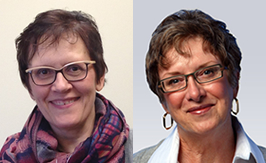 Susan Bazylewski, Vice-President, Care Services, and Louise Frederick, Patient Family Advisory Committee, Saskatchewan Cancer Agency
Susan Bazylewski, Vice-President, Care Services, and Louise Frederick, Patient Family Advisory Committee, Saskatchewan Cancer Agency On March 12, 2015, Dr. Murray Krahn talked about developing a fair, transparent, and values-based framework for decisions about the adoption and use of health technologies.
On March 12, 2015, Dr. Murray Krahn talked about developing a fair, transparent, and values-based framework for decisions about the adoption and use of health technologies. On February 10, 2015, Dr. Jeffrey Hoch recognized some of the academic contributions of the late Professor Bernie O'Brien and how they are still relevant to HTA today.
On February 10, 2015, Dr. Jeffrey Hoch recognized some of the academic contributions of the late Professor Bernie O'Brien and how they are still relevant to HTA today.